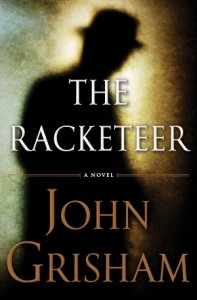A guest post by David Boop.
Despite what jocks, preps and princesses might believe, not all nerds are created equal. Just like any pool of people, some rise to the surface while others languish in the shadows.
Is this fair? Heavens, no. Is it reality? You bet your sweet bippy.
Whether or not you believe all persons are the same in the eyes of God, it is a truth that we place people in mental categories within our minds. Smart – Stupid. Safe – Dangerous. Normal – Awkward. It is easy to drop those we meet into virtual file cabinets of our brain to help us determine how much effort we’ll spend on them.
I grew up a geek in small town Wisconsin. I was verbally and physically abused by my classmates for it. This is a common experience among creative types, including writers, artists, and filmmakers. (Musicians seem to get away with more, I have no idea why. You can be a dork, play the guitar and somehow still be cool.)
It started with my last name, Boop; a funny sounding, easily picked on name. When you have a name like Boop, you’re put into a category of clown, even if you’re not one. My name was used as a swear word around my school.
“I’m going to go take a Boop.”
“I’m going to Boop you up!”
“I Booped your mother last night.”
I didn’t make things any better by not growing out of comics, action figures, video games, cartoons and science-fiction novels. I found very few people to share these interests with in a school focused on athletic excellence. Dating was next to impossible. I was told by a friend on Facebook that there were warnings not to date me or risk being removed from the popular crowd. Girls called me a “goon” behind my back. But this wasn’t solely due to my nerdy proclivities.
I was and, in many ways, still am socially awkward.
I didn’t walk the walk, nor talk the talk. I wasn’t into the same things other kids were and thus didn’t have the vernacular down. Slang eluded me. I came from a conservative household. It is hard to be a “good boy” while feeling pressure to lose your virginity, drink and raise hell. I finally caught up to my peers at nineteen when I went into radio, started working nightclubs and doing stand-up comedy. I finally understood what it took to be popular and that meant being a crazier bastard than everyone else in the room.
The “good boy/crazy bastard” dichotomy has carried over into my career as a writer. Yet, thirty years later, the tables have reversed. Now the popular kids want me to be a good boy; always be politically correct, sensitive to minority and women’s rights and not to sleep around at cons.
Wait! That’s not fair! I just got this down. Filthy mouth, bad jokes and loose morals meant popularity. How and when did that change? These new rules are the same rules my parents tried to instill in me as a child. You mean they were right? (Please tell my child that someday I might be right, too. Please?)
And so I shift again, not always as quickly or effectively as I’d like. I’m still that awkward kid, trying to get the vernacular right. Still trying to prove I deserve to be one of the cool kids.
With the accessibility of publishing and the growth of the genre market, writers who may never been that socially awkward kid are finding success, and thus have no frame of reference to what we’ve been through. And they’ve been given a platform called the Internet. There are too many watchdogs with too little compassion for people like me who don’t always “get it.” Writing used to be a solitary craft with very little exposure to either other writers and/or fans. Back then, when authors did get together, everyone was socially awkward and more forgiving. They welcomed the weird with open arms and it was a safe place to be wrong sometimes.
Now that geek is chic, some people claim ownership of all things nerdy and say that nerds shouldn’t be creepy or inept, holding themselves up as examples. Shows like The Big Bang Theory and King of the Nerds poke fun at what are very serious issues for some nerds. People say they want a Raj or Leonard in their life until one tries to make friends with them and they’re turned away and shunned. It has been my experience that there are writers with little-to-no tolerance for those not playing at their level mentally, socially or politically. Any mistake in judgment is highlighted and waved in front of millions. If the offender does not fit into their definition of “acceptable,” then they should be attacked, banned, kept from getting published in certain circles, despite any skill they might have.
And, to be honest, in some cases they have valid reasons. They are writers who don’t know when to lower their voices, use tact, pay attention to their audience. I have been accused of many of these things, and while I’ve learned and adapted, many others haven’t. Some of these writers are not used to being around the opposite sex, or try too hard to be liked by their peers. They miss social cues, speak out of turn and don’t know when to back off. And when they find themselves in the sights of the socially adept, they have no clue why. Even when they have a light-bulb moment, they don’t know how to change. Most times the damage is already done. They lose friends, contacts and opportunities.
But don’t misinterpret what I’m saying that there aren’t dangerous people out there that need to be exposed. The predators who pretend to be what they are not. These are not socially inept people, they are sociopaths and bringing them out in the open is everyone’s responsibility.
Not all non-socially awkward people are evil and not all socially awkward people are saints. If I’ve learned one thing, there are plenty of buttheads on both sides of any disagreement. Heck, I know I’ve been accused of such by both sides. But we’ve all been bound together by this need to express ourselves creatively. Some of the most imaginative people I’ve read can barely carry on a conversation. Should they be ostracized for what may be the hardest thing in the world to them? I don’t think so.
Despite the challenges, I’ve adapted. I’ve learned to hold my tongue under most situations. I’ve developed patience and looked for deeper understanding when dealing with people in social circumstances. As I change, I’m building better relationships with other writers who understand, those who “get me.”
It’s worth it. I want to make writing work. I have to. The goal is worth the effort. Does that make me smarter than some? Does that make me better than others? No. I’m far from perfect and I still make mistakes…
And that just makes me human.
 David Boop is a bestselling Denver-based speculative fiction author. In addition to his novels, short stories and children’s books, he’s also an award-winning essayist and screenwriter. His novel, the sci-fi/noir She Murdered Me with Science, will return to print in 2015 from WordFire Press. David has had over forty short stories published and two short films produced. While known for Weird Westerns, he’s published across several genres including media tie-ins for titles like The Green Hornet and Veronica Mars. His first Steampunk children’s book, The Three Inventors Sneebury, had a digital release in 2013 with a print release due in 2016. David tours the country regularly speaking on writing and publishing at schools, libraries and conventions.He’s a single dad, Summa Cum Laude graduate, part-time temp worker and believer. His hobbies include film noir, anime, the Blues and Mayan History. You can find out more on his fanpage, www.facebook.com/dboop.updates or Twitter @david_boop.
David Boop is a bestselling Denver-based speculative fiction author. In addition to his novels, short stories and children’s books, he’s also an award-winning essayist and screenwriter. His novel, the sci-fi/noir She Murdered Me with Science, will return to print in 2015 from WordFire Press. David has had over forty short stories published and two short films produced. While known for Weird Westerns, he’s published across several genres including media tie-ins for titles like The Green Hornet and Veronica Mars. His first Steampunk children’s book, The Three Inventors Sneebury, had a digital release in 2013 with a print release due in 2016. David tours the country regularly speaking on writing and publishing at schools, libraries and conventions.He’s a single dad, Summa Cum Laude graduate, part-time temp worker and believer. His hobbies include film noir, anime, the Blues and Mayan History. You can find out more on his fanpage, www.facebook.com/dboop.updates or Twitter @david_boop.



